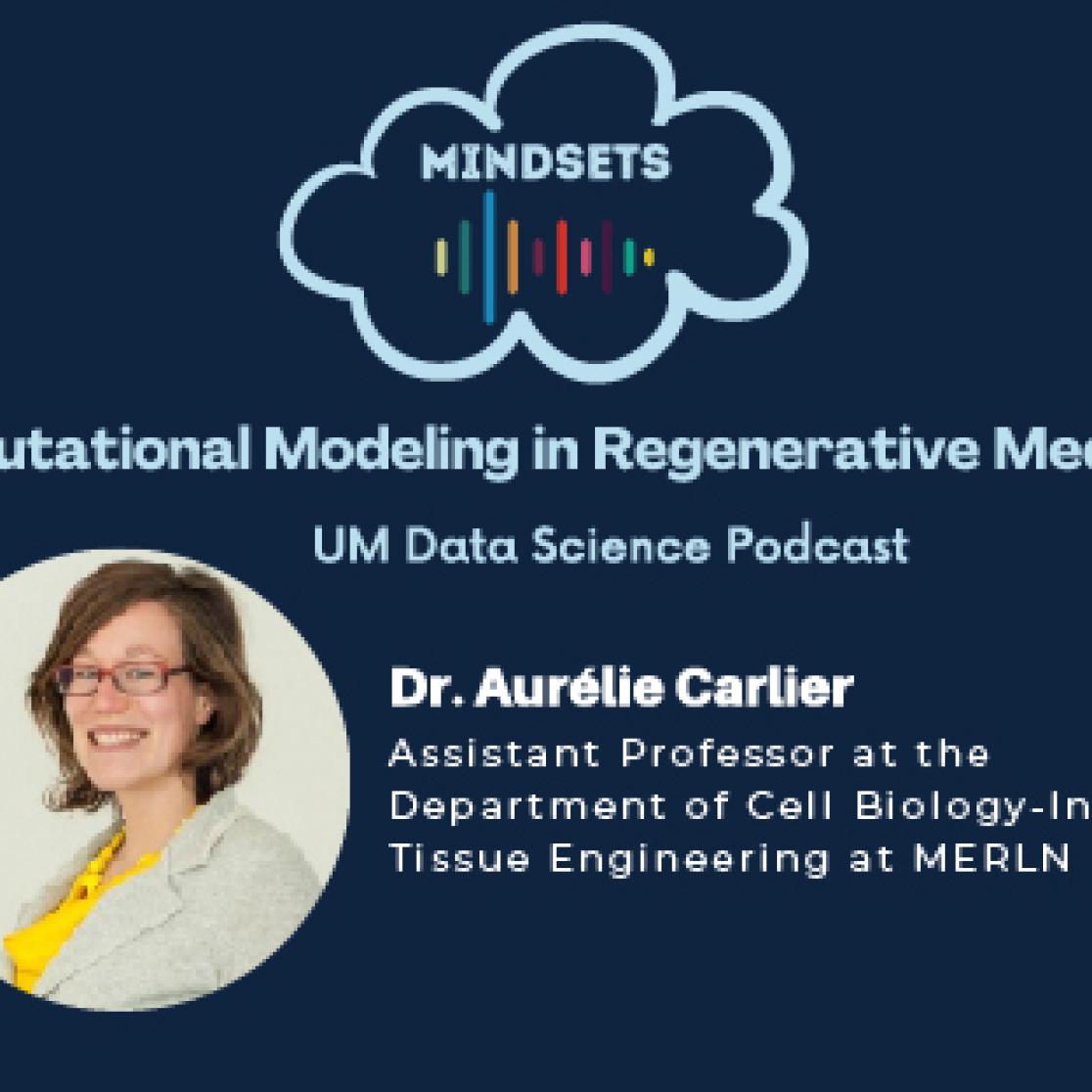Episode 3: Computational Modeling in Regenerative Medicine
In this new DSMINDSETS podcast episode, we invited Dr. Aurélie Carlier. Aurélie is an assistant. prof. at the Department of Cell Biology-Inspired Tissue Engineering at the Institute for Technology-Inspired Regenerative Medicine, in short MERLN.
Aurélie is a board Member in the European Society of Biomechanics and the Netherlands society for Biomaterials and Tissue Engineering. Besides her research interests in computational modelling and regenerative medicine, she is also passionate about empowerment of women and gender equity and diversity. Together with other women from Maastricht University she has founded Female Empowerment Maastricht (FEM). FEM promotes female empowerment and leadership and encourages and fosters an open discussion on gender equality and equity within the UM community.

Her Research
- Works at the interface of data science, tissue engineering and regenerative medicine
- Core expertise in modelling, expert in white box models
- High throughput screening at MERLN generates a lot a data, need for “data science”
- Future outlook to automate white box models from analysing generates
- Focuses on mathematical models and equations to describe and predict the biology, for example the toxin transport in kidney function
- Believes in the impact for the patient and clinicians see the potential of this method
Introductions
Aurélie shares with us that her hobbies are running and Yoga. She is happy that she picked up her in-person Yoga class again, as it helps her relax. In the future she would like to learn the piano. Then, Aurélie talks about her studies in engineering, her master, PhD project and post-doc in Biomedical Engineering. For 6 years she has been at UM now and works as assistant prof in computational modeling and regenerative medicine.
Her role as female scientist, FEM co-founder and mother:
- Working as a female scientist and mother comes with various challenges, e.g. travelling to conferences and research visits, systemic bias (e.g. less citations, key notes and grants for women)
- Good things are happening, such as grant extensions for mothers
- More awareness, information and training is needed
- FEM lunches provide a platform to connect, meet and exchange knowledge for other female scientists and/or expecting mothers
-
Stigma around not only motherhood, but also infertility and the decision not to have children
From the DSMINDSETS podcast team, it was a pleasure to bring you this episode. Stay tuned for the next one!
Closing
- Pros/cons working in an interdisciplinary field and how to enhance interdisciplinary work, such as changes in study curriculum and funding schemes
- Advice for younger scientists 1) to find one or multiple mentors, 2) prioritize parts of your career, 3) define success and happiness for yourself, 4) it is possible to combine parenthood and an academic career.